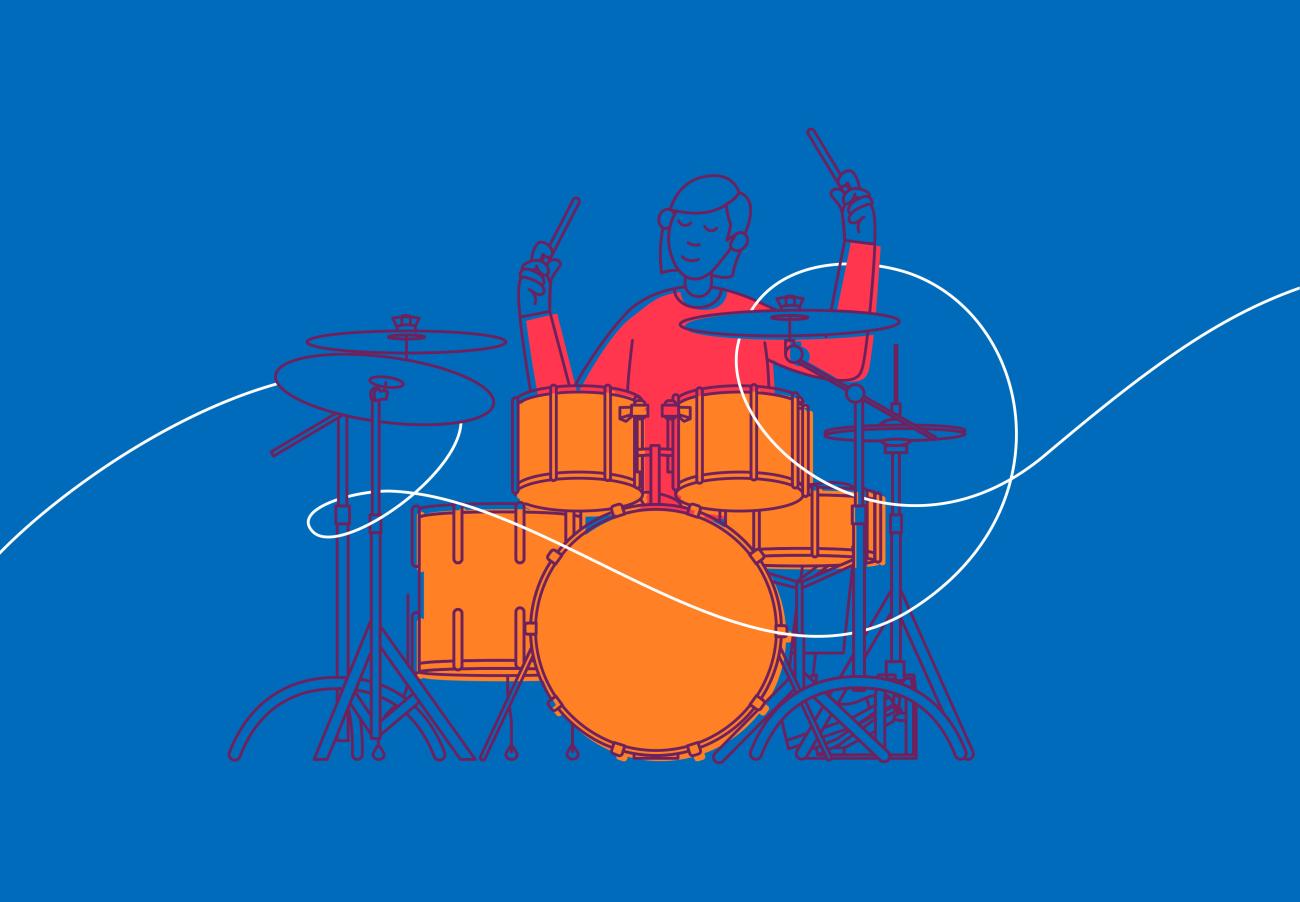Ten questions with our Chief Examiners – Zoë Booth

Our five Chief Examiners collectively lead, support and guide our team of examiners as well as contributing to everything we do as a music education organisation. Read on to find out more about Zoë and look out for more conversations with our Chief Examiners in the coming weeks.
What do you play and what do you love about it?
I’m a flute player mainly. The flute is known for playing beautiful, colourful melodies or offering characterful note-gymnastics but it can be powerful too – it’s the sound that I find fascinating. The other thing I absolutely adore about playing the flute is that I can make music with other people – just pop it in my bag and off I go!
How did you get started with music?
My mum told me that I used to whistle even when I was in my pram! I think I’ve always sat at the piano and played but having learned recorder with my class, I started lessons on the flute when I was eight, because I knew my dad liked its sound.
Tell us about a memorable teacher?
I haven’t seen my first teacher since junior school, but I’d love to say a big thank you to her for getting me started – Mrs Barker, I hope you read this! Since then, I’ve been so lucky to work with a number of amazing teachers, and I’ll just mention two. I used to come away from all my lessons with Martin Feinstein feeling musically super-charged and it was at his suggestion that I applied for music college, which is so special in having led to my life spent with music – I went to the Royal Northern College of Music as an ABRSM scholar. Once there, the late Peter Lloyd was an utter inspiration, as a musician and for the amazing humanity of his teaching – nowadays my own pupils often hear me quoting his gems of wisdom.
Can you tell us about a favourite piece of music?
This is such a hard question – just ONE piece?! I love so many styles of music, ooh this is tough. I’m going to suggest something which I hope anyone reading this will think about seeking out, whether for the first time or the thousandth, and that’s Mendelssohn’s Hebrides Overture (Fingal’s Cave). This is such stirring music and the first time I participated in an orchestra, aged eleven, this was what we learned. I’ll never forget what it felt like to be surrounded by the sounds from the orchestra for the first time, it was an exciting sonic experience I’d never thought possible before. In 2016 I got the chance to visit the Hebrides on a musical tour, and playing and thinking of this music surrounded by the landscape and broad sky just added to its intensity.
What musical activities or projects are you involved with?
Aside from examining, I’ve been arranging music for an event and practising for a tour and recitals. I’ll be taking groups of adults away on holiday courses in the summer, where they can share their music. I’m also really involved with the tiniest musical details and love getting stuck into pieces with my students.
What motivates your musically?
Whatever the genre, the music itself has to communicate. What I’m always seeking is that magical moment when the composer’s ideas combine with those of the performer in that particular instant – the same piece of music can be different every time it’s played.
What do you like most about being an examiner?
It’s such a privilege to listen to someone’s exam, which is the culmination of months or even years of work; after thirteen years, that’s still a huge draw. Meeting people and doing my best to give them a positive experience, that’s something I love too.
Can you tell us something about what you’re focusing on in your role as Chief Examiner?
On a typical day, there’s usually a mixture of listening to music in great detail, talking to examiner colleagues and getting the opportunity to speak with groups of teachers and learners. Training new examiners is one of my areas of focus; becoming an examiner is challenging and stimulating and the training courses themselves are a highlight of my diary.
What do you enjoy doing when you’re not busy with music?
I love to visit new places, learn new things and spend time with family and friends.
If you didn’t play the flute, what instrument would you most like to play?
I do play the piano – as all examiners do – but because the repertoire for the piano is so vast I know there’s still much more for me to learn, play and enjoy. In terms of a completely different instrument, I love picking up new things; these are mostly woodwind instruments when I’m on my travels, which open up whole new worlds of sound to explore.

